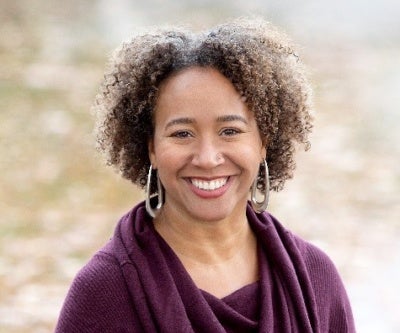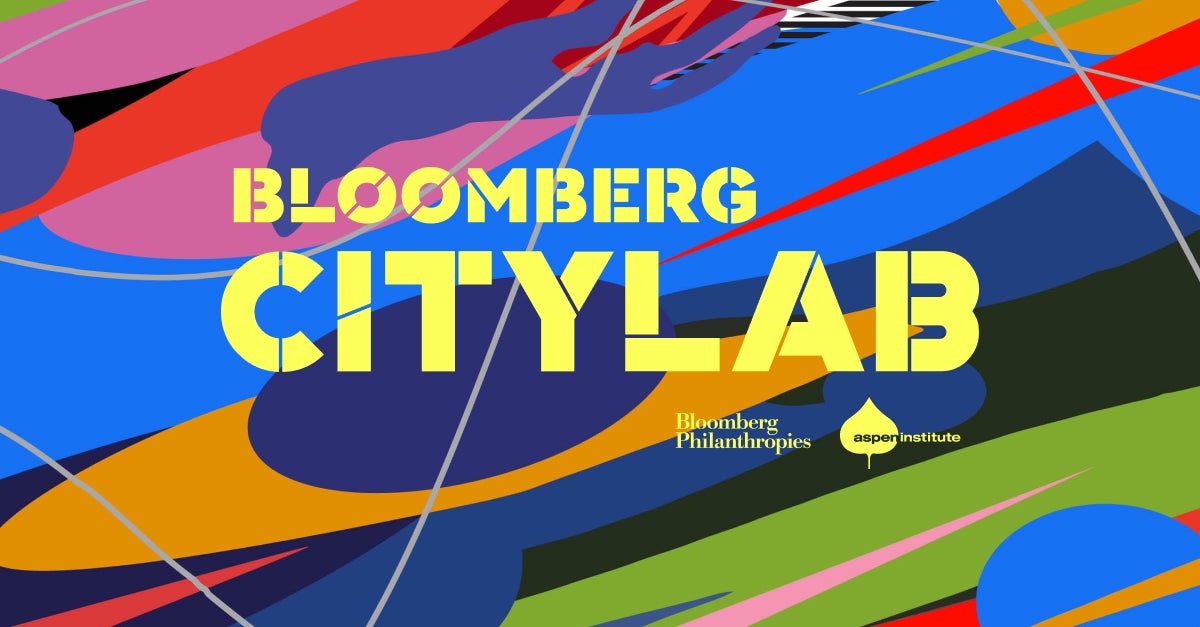Mia Birdsong is a writer and speaker whose work focuses on the brilliant adaptations of everyday people. Most recently, she was the co-director of Family Story. Her 2015 TED talk “The Story We Tell About Poverty Isn’t True” has been viewed over 1.6 million times already. She is working on her first book, “How We Show Up,” about how people create family and community. It will be published in Fall of 2019.
This interview is part of the Aspen Institute Center for Urban Innovation’s series of conversations with inclusive innovation practitioners.
Jennifer Bradley: What are the values that guide your work?
Mia Birdsong: Values is such an interesting concept. It’s one of those things that people assume we have a common understanding of, but we don’t necessarily.

Mia Birdsong
When I think about the values that guide my work, I think they’re fundamentally the values that most people would hope they carry. There’s a value for me about community and the collective, and that means prioritizing the wellbeing of the collective and leadership being a collective process. Because if the community is taken care of, that means all of us are okay, right? And embedded in that is a mindset that assumes abundance, that there is enough for all of us. We have enough.
And then there’s also something around recognizing that we’re constantly reinventing things, reaching back into the past and recognizing and respecting that as we move forward. So we may reorient something, but things are not necessarily new and we don’t have to scrap everything and start over, because there’s a lot that we already know. Either from literally looking through history or understanding our own histories, but also there’s something in our ancestral DNA that we can be tapping into.
There’s also some things about understanding liberation as a process that all of us should engage in. We are not on a linear path toward it. We’re not traveling in a straight line along some path to this future where we are all free. It’s a thing that exists in each of us. Some of us have more access to that than others, and it’s something that we can build in ourselves and build with other people. It’s like a ripple that moves out in concentric circles, and, ultimately, if we’re actually all liberated, then those circles are intersecting and everywhere.
And in that is a recognition of the complicated people that we are. No one is all good or all bad. We are all carrying around our lifetime of experiences and generational trauma that can make us behave in stupid ways. We also carry the joy and resilience and creativity of our people.
Usually when people talk about values, they talk about things like, honesty and truth and loyalty, and that’s not really how I’m thinking about it. The through line, the overarching theme in all of the things I’ve mentioned so far is, I think, love, and the vulnerability that comes from love, right? The willingness to be seen and to see other people, and to mutually commit to helping and supporting each other and asking for help and support, and holding people accountable and being held accountable. That’s what I think of when I think of love, and that goes back to the community and the collective too.
JB: Can you tell a story about how some of your values have been in conflict, in which you couldn’t live up to all of them at once, and how you resolved that?
MB: Yeah, [that happens] all the time. Our values are these ideals we hold and they guide us, but we’re always falling short and failing and messing up.
One of the things that I have committed to struggling with, because there is no permanent resolution of this for me, is occupying a place of border crossing and continually moving between different worlds. There are the rarefied elitist spaces of places like Aspen, and then there are the friends I have or communities I work with that exist far away from those places. What I’m doing is trying to bring what I learn from places that experience marginalization and injustice, bring voices, perspectives, solutions, those things, to these other places—the rooms where decisions are made, the people who wield tremendous power.
Having access to the super fancy places and being in genuine relationships with the people in those places can be complicated and, honestly, seductive. It can be challenging to remember who it is I’m actually accountable to. I’m often struggling with wanting to fit in and belong and be accepted, like we all are. But doing that would require that I set aside my purpose, and that’s something that I’m continually conscious of. It’s getting a little easier for me to manage, partly because those rarefied rooms are less interesting and are less novel, but also because I have people in my life who I’ve very intentionally designated my wise counsel. They are the guardians of the value I was talking about before about accountability as being a kind of love. I look to them to hold me accountable to myself and to my values, to my purpose.
It’s hard to hold one’s self accountable. It can be difficult to maintain perspective when you’re inside of something. So, having external people who know me deeply and love me deeply and also will not tolerate any bullshit from me helps resolve tensions between my values and my less evolved self.
JB: What’s the purpose of values in your work?
MB: My values are foundational. They’re beliefs, they are truths, they are the architecture, the pillars that I’m building things on, and when I don’t have the right ones in place or somebody else doesn’t have the right ones in place, because that can happen too, then everything that’s built on top of it is flawed. So they provide the strong foundation for the work.
But I think they also provide course correction, because sometimes we get enamored with or excited about ideas or concepts and there will be a bunch of momentum to move something forward, and going back to values helps with making sure we’re on the right path.
I don’t have a list of values on my wall to reflect on or go back to. Values are in my gut, right? They’re not some list that I check off when I’m moving through my day or my week. They’re just embedded in who I am fundamentally as a person, so it’s more about me checking in with myself if something starts to feel off, and paying attention to whatever that feeling is and sitting with it to figure out what it is trying to tell me.
JB: With that in mind, tell me about a time that your organizational values guided you through a difficult decision.
MB: More than once in my life, I have been at organizations and realized that the organization was not only not working in line with my values, but also was not working in line with its own values.
I realized that was happening and tried to shift things, and, in failing to do that, recognized it was time for me to go, both because it felt uncomfortable for me to be some place that wasn’t aligned with my values, and also because it was harmful to me–the way in which that misalignment was manifesting–and I just trusted that I could be doing better things elsewhere. So I left, I quit.
JB: You talked about this previously, but do you want to say more about how you hold yourself accountable to your values?
MB: At this point in my life I’m aware that there’s a particular kind of discomfort I feel when I’m not doing what I’m supposed to be doing, and sometimes it takes me longer than other times to acknowledge it or wrestle with it the way that I need to and understand it. And then other times, I’ll tell somebody who is part of my circle, my wise counsel, about something I’m doing, not because I’m trying to check in with them about whether or not it’s okay–I’m just sharing something and I’ll be excited about it and I’ll just get a look. They’ll be like, “Um, so let me ask you some questions about that,” and they’ll break it down and I’m like, “Oh no. All right. Never mind, I guess I can’t do that or I need to stop doing that or I need to shift this that way.”
It’s so important to me to be on purpose. To be doing the things that I’m supposed to be doing in this world, and those folks know that, so being in community in that way helps me stay aligned. They can tell me that I’m doing something that I ought not be doing, but they can’t make me change it, right? But the discomfort that I feel and the idea of disappointing people who I value and who I trust, and they love me and I love them, is one of those things that helps keep me accountable.
This interview has been condensed and edited for clarity.
This blog series is supported by the Citi Foundation, a vital early supporter of the Center for Urban Innovation at the Aspen Institute. With the Citi Foundation’s help, the Center convened leading-edge practitioners to develop a shared set of principles to guide a cross-sector approach to inclusive innovation in low- and middle-income neighborhoods, and to determine how the Aspen Institute could support this practice


